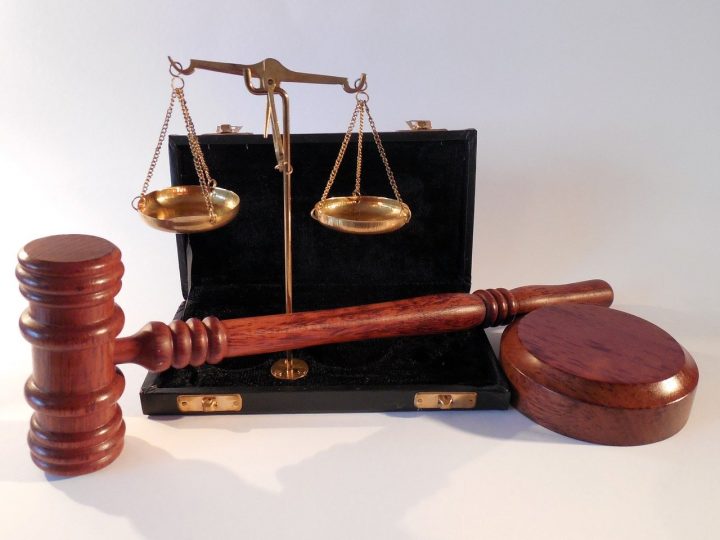Navigating Personal Injury Claims in Illinois: What You Need To Know
If you’ve been injured in Illinois due to someone else’s negligence, understanding the ins and outs of personal injury claims is crucial. The complexities of the legal system can be daunting, but with the right information, you can navigate through the process effectively. Whether you’ve sustained injuries in a car accident, a slip-and-fall incident, or another unfortunate event, being well-informed can help you secure the compensation you rightfully deserve. Below, we’ll explore key aspects of personal injury claims in the Prairie State, ensuring you’re well-equipped to take the necessary steps. Keep reading to become more knowledgeable about this vital topic.
Understanding Personal Injury Claims in Illinois

Navigating personal injury law in Illinois can be complex, requiring a clear understanding of key concepts. Duncan Law Group in Illinois emphasizes the importance of establishing negligence to initiate a viable claim. This involves demonstrating how another party’s breach of duty of care directly caused your injuries. Whether it’s a motor vehicle accident, medical malpractice, or products liability case, knowing the specific category is crucial. Despite the differences, proving fault and damages remains consistent across all types of claims.
Understanding the types of damages is essential. In Illinois, they can be economic (like medical bills and lost wages) or non-economic (such as pain and suffering). Duncan Law Group emphasizes the need to accurately calculate both current and future expenses. Illinois operates under the modified comparative negligence rule. This means compensation may be reduced if the injured party shares fault. For effective representation and presenting liability accurately, seeking legal counsel from Duncan Law Group in Illinois is recommended.
Key Steps to Filing a Personal Injury Claim in Illinois
Initiating a personal injury claim in Illinois starts with obtaining detailed medical records to support your case. Seeking prompt medical attention is essential for both recovery and gathering crucial evidence.
After addressing medical needs, consulting with an experienced personal injury attorney is crucial. They provide valuable advice, assess the viability of your claim, and assist with the filing process.
Your attorney takes charge of investigating the incident, gathering evidence, and communicating with insurance companies to seek a fair settlement.
If settlement negotiations fail, your attorney prepares for trial, engaging in the discovery process and potentially conducting depositions. The trial experience becomes vital for navigating the complexities of the court effectively.
The Role of Evidence in Strengthening Your Illinois Personal Injury Case

In Illinois, evidence is crucial for building a strong personal injury claim. Gathering evidence immediately after an incident, such as photos and witness information, is vital to establish the facts.
Medical records play a pivotal role by documenting injuries and treatments, linking them to the accident. They provide a clear picture of the impact and duration of injuries.
Expert testimony adds weight to a case by explaining technical aspects of injuries and their effects on daily life. Experts also assess long-term consequences and future care needs, influencing damages.
A thorough collection of evidence is essential for negotiations and court presentations. In today’s digital age, additional evidence can come from surveillance footage and social media activity. An experienced lawyer can guide on the most effective evidence for each case.
Working with Personal Injury Attorneys: Finding the Right Fit for Your Case in Illinois
Choosing the right attorney is crucial for your personal injury claim in Illinois. Look for someone who knows state laws and has experience with your specific injury and claim type. A solid attorney-client relationship built on trust is key.
Most personal injury lawyers offer free initial consultations. Use this opportunity to assess their expertise, track record, and willingness to go to trial if needed. Discuss success rates and case strategies to gauge their suitability.
Consider practical aspects like fee structures before making a decision. Personal injury attorneys typically work on a contingency fee basis, meaning they only get paid if you win. Understand how fees and expenses are managed.
Specialized firms like Duncan Law Group in Illinois can provide focused expertise and resources for your case. Their attorneys use their knowledge to navigate Illinois personal injury law, ensuring your rights are protected and you receive fair compensation.
Altogether, navigating a personal injury claim in Illinois requires grasping legal concepts, filing correctly, and maximizing evidence. With proper legal assistance, you can pursue compensation confidently, aiding your recovery and progression in life.




